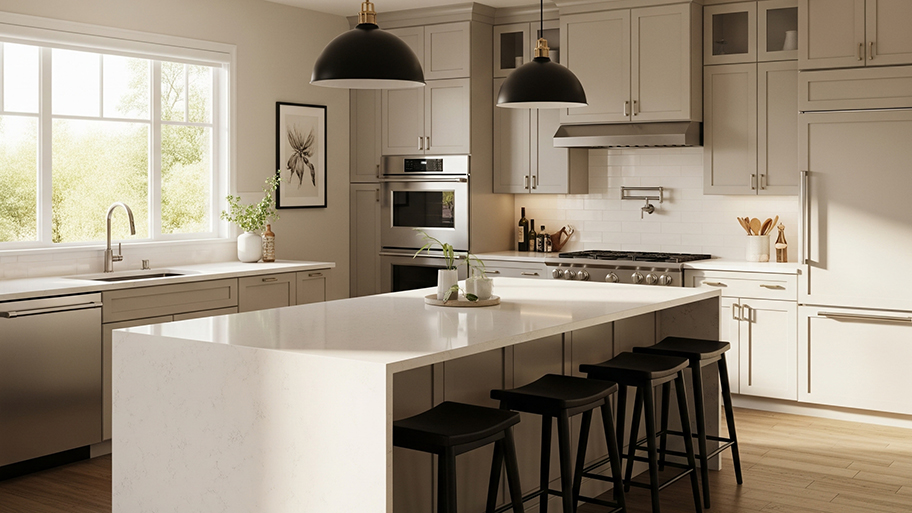
New quartz countertops can give any kitchen a facelift. Find out quartz countertop costs, including quartz slab prices and the cost of installation.
Quartz is beautiful and durable, but is it right for you?
Quartz is an engineered stone countertop made by combining quartz minerals and resin.
Quartz countertops cost between $50 and $200 per square foot.
This material is highly durable and naturally nonporous but won’t hold up well to heat.
Maintaining a quartz countertop is simple and requires gentle cleaning and protection from heat.
Kitchens see a lot of action, which means your countertops need to be durable and aesthetically pleasing. As a tough, nonporous surface, quartz is an excellent countertop option. But what are quartz countertops, and are they the best choice for your home? This guide will tell you everything you need to know about quartz countertops so you can make an informed decision.
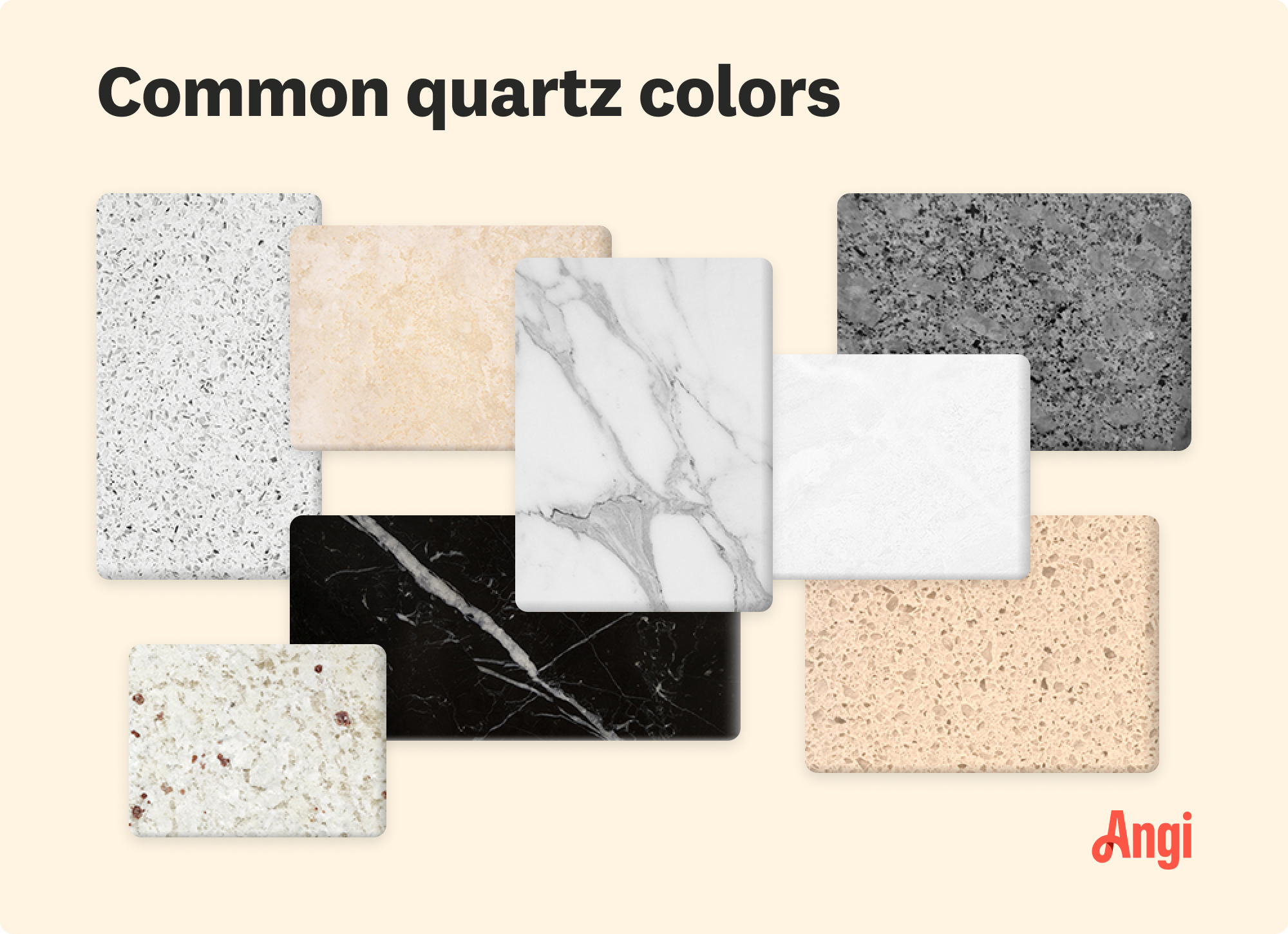
Quartz is a manufactured stone countertop made from ground quartz, resin, and pigments. The manufacturing process creates a material that resembles solid stone but is naturally nonporous and doesn’t require sealing.
Quartz is a durable, versatile countertop material that resembles more expensive materials like marble or granite. Manufacturers can add different pigments when making quartz countertops, so you can find options in various hues like cream, blue, brown, black, white, gray, green, and more. Veining and metallic flecks add interest to the countertop, which means you can find a style that matches your kitchen design and aesthetic preferences.
The amount you’ll pay to purchase and install quartz countertops depends on the size and layout of your kitchen or bathroom, the material quality, and your chosen edging design. However, quartz countertops cost an average of $4,500, ranging between $1,500 and $8,000.
You can minimize your costs by choosing a common style over a rare one, sticking to standard thicknesses, and opting for a cheaper material for your backsplash.
Like any countertop material, quartz has its share of pros and cons. Familiarize yourself with both before deciding whether or not to go with quartz.
| Pros of Quartz Countertops | Cons of Quartz Countertops |
|---|---|
| Nonporous | Susceptible to heat damage |
| Resistant to water stains | Can be expensive |
| Resistant to scratches and chips | Not suitable for outdoor use |
| Easily repairable | Difficult to install |
| Low maintenance and cleaning requirements |
Quartz is naturally nonporous thanks to the inclusion of resin during manufacturing, which means it doesn’t require sealing, and it won’t stain or develop watermarks if you don’t wipe up spills immediately. It’s also highly resistant to scratches and chips— if you do scratch it, you can repair the surface by buffing it with polish. Cleaning quartz is as easy as wiping it down with a soft cloth or sponge and soapy water. Plus, it’s antimicrobial, so you won’t need to worry about bacteria or mold penetrating the countertops.
However, heat can damage quartz, which is a disadvantage in a kitchen. You’ll need to use a hot pad or trivet under cookware to prevent surface damage. Quartz is also more expensive than some other countertop materials, like laminate or butcher block, which can be a barrier to those with a limited budget. Quartz can be damaged by UV light and isn’t suitable for use in an outdoor kitchen. And, due to its weight and size, it’s not the easiest countertop material to install.
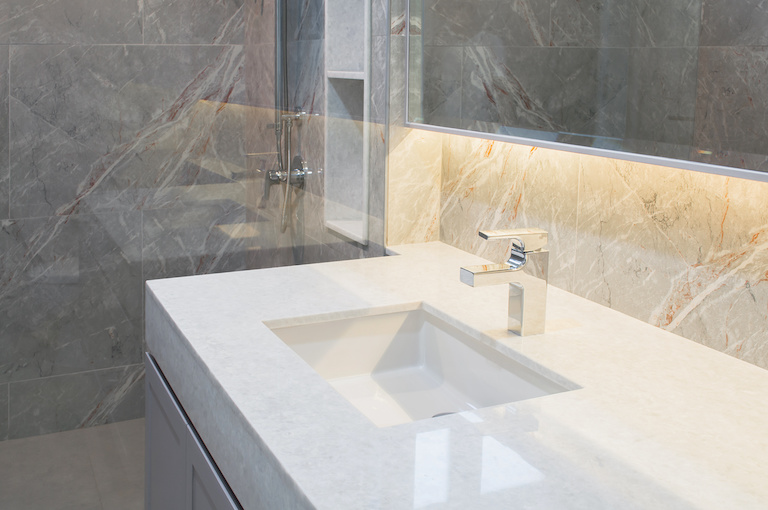
Installing a quartz countertop is a complex project due to the slab’s size and weight. DIY installation is only possible if you have experience and the right equipment. Tackling this project yourself can save between $10 and $30 per square foot.
In most cases, it’s best to leave the work to a local quartz countertop installation pro. A professional has experience installing stone countertops like quartz and knows how to handle the material to minimize damage. They’ll ensure the countertop is installed correctly the first time. Improper installation can cause lasting damage that will cost more to repair than you will have saved in labor costs by installing your quartz countertops on your own.
Quartz countertops are known for being extremely low maintenance. These tips will help ensure your countertops look as good as new, even decades after installation.
Clean quartz countertops with soapy water or a gentle cleaner.
Avoid abrasive sponges and stick to soft ones or microfiber cloths.
Stay away from acidic or alkaline cleaners.
Clean up spills—especially ketchup, lemon juice, and coffee—immediately to prevent staining.
Always use a cutting board, and never chop directly on the countertop.
Place a hot pad or trivet under pans or other cookware to prevent heat damage.
From average costs to expert advice, get all the answers you need to get your job done.

New quartz countertops can give any kitchen a facelift. Find out quartz countertop costs, including quartz slab prices and the cost of installation.
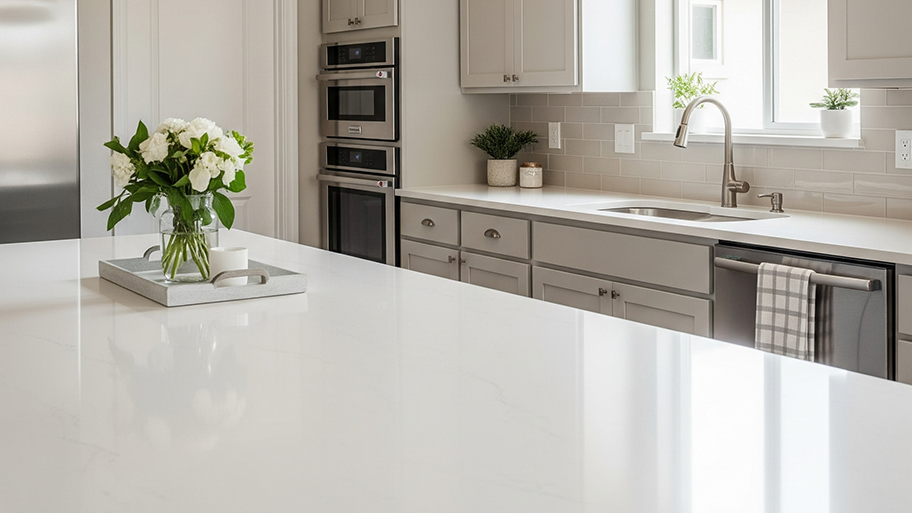
Silestone® has long been a favorite of homeowners who like the look of quartz. Budget for your Silestone® countertop’s cost with this helpful guide.
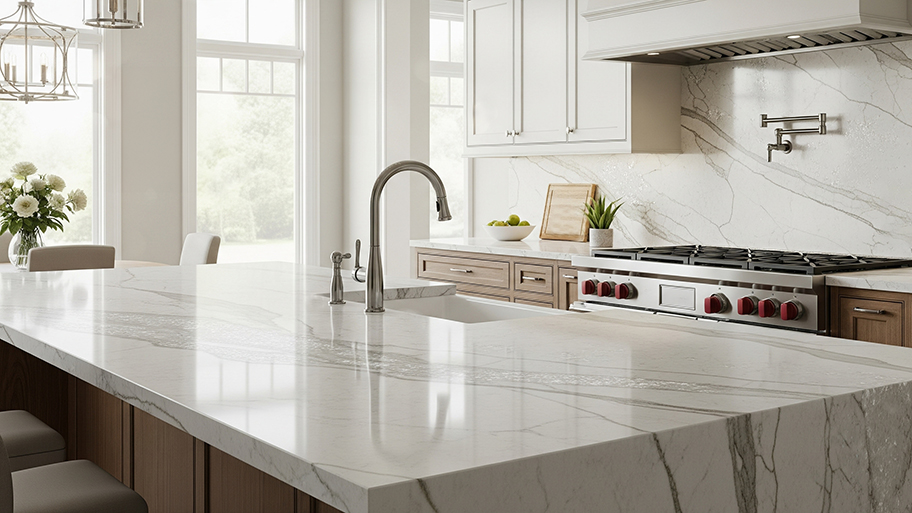
How much your quartzite countertops will cost depends on a number of factors—most prominently, the type of quartzite and the size of your counters.

Seams in granite countertops aren’t unusual, but they can be unsightly and annoying. Learn how to avoid seams in granite countertops in your home.
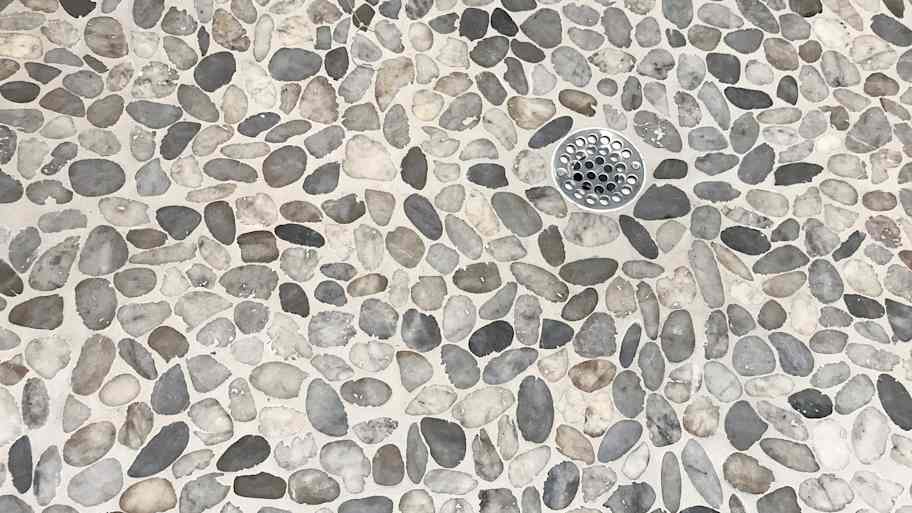
Pebble shower floors create a natural aesthetic, but they may not be safe for everyone. Weigh the pros and cons of pebble shower floors while building your shower.

If you are investing in new kitchen counters, you may wonder if quartz countertops are heat resistant. This guide explains how much heat quartz countertops can take and how to protect them.